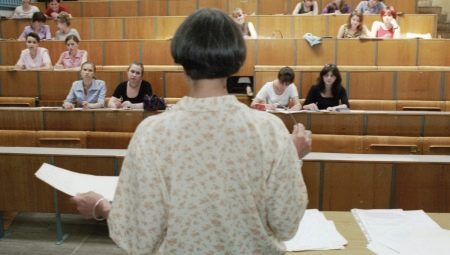Law teacher: description, advantages and disadvantages, study

The legal profession plays an important role in the learning process. We will talk about what duties this specialist performs, and what requirements are imposed on him.

Peculiarities
A law teacher is engaged in legal training and education of a person. Such a specialist must ensure the correct formation of legal attitudes. In addition, the mentor develops respect for the law, develops the habit of obeying the law without any deviation. Such educational activities are most often conducted not with schoolchildren, but with students in higher educational institutions.
In universities and academies, these teachers are often engaged not only in teaching students, but also in research activities. They can publish their scientific works, articles.

Advantages and disadvantages
This profession has a number of important advantages:
- the ability to conduct research, publish your own scientific work, literature;
- the opportunity to receive grants for scientific research;
- high status in society;
- the opportunity to participate in scientific conferences in foreign countries.
Moreover, this profession also has some disadvantages:
- most often irregular working hours;
- the level of wages can vary significantly depending on the place of work.

Responsibilities
The competence of the teacher of law includes the following duties.
- Teaching students. This important function includes lecturing, conducting and organizing seminars. Moreover, most often each of these teachers is responsible only for a certain branch of law (civil, criminal, labor).In some cases, these specialists can act as tutors for schoolchildren.
- Participation in the scientific, research process of the department. The work of such teachers also includes conducting research in the field of various branches of law, presenting their works at scientific conferences, including international ones.
- Implementation of the established curricula in the institution. Such workers must comply with the plan of lectures and seminars, conduct training of students in accordance with them.
- Development of training programs... Law educators should also be involved in the development of various teaching guidelines and course plans.

Knowledge and skills
To become a qualified law teacher, you need to have certain skills and meet certain requirements. So, this employee of educational institutions must have a higher specialized professional education, depending on a particular discipline.
In addition, higher education institutions also require work experience in this area. Most often, it must be at least 3 years old.
Lecturer in this field is obliged to master the basics of pedagogy and psychology. Also, the employee must be able to quickly work with information, including quickly analyze it, compare facts with each other. Sometimes knowledge of a foreign language is also required. The specialist must have a high level of knowledge of the structure of the taught discipline, as well as be able to organize the curriculum, apply a variety of pedagogical forms to control the learning process of students. In addition, such workers are often required to be able to develop the teaching aids necessary for the educational process for conducting seminars.

Education
To become a law teacher, you need to have a complete higher education, depending on the profile area (civil, criminal law). Often these specialists are trained in the following programs:
- history and law;
- jurisprudence and law enforcement;
- law, social science;
- law and economics;
- jurisprudence and management of educational work;
- law and foreign (English) language.
These specialties will help prepare qualified law teachers.

Most often in the future, such workers are employed in universities, research centers, academies and colleges.

For a description, advantages and disadvantages of a law teacher, see the video.








